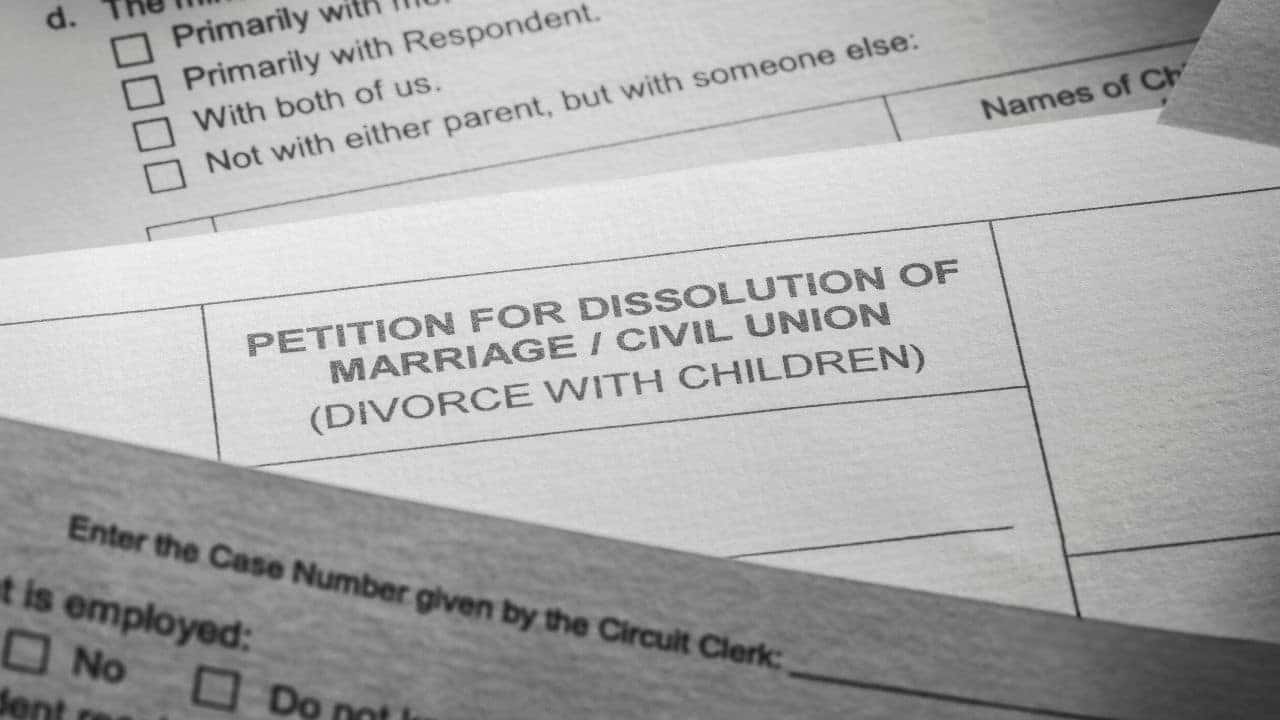In Illinois, family law cases are governed by the Illinois Marriage and Dissolution of Marriage Act. The Illinois Marriage and Dissolution of Marriage Act is a statute which provides the Court with the power to decide the issues in a divorce proceeding, such as property issues and custody issues. In order for the Court to have the power to grant a divorce, the State of Illinois requires certain conditions be met.
Illinois Divorce Jurisdiction Requirements
Addressing a Common Question ‘Where Should My Divorce Case Be Filed?’
First, the court must have subject matter jurisdiction. Subject matter jurisdiction is a lot like its name! A court must have the authority to hear the type of case or subject brought forward. For the purposes of Family Law, only a State Court will have jurisdiction over a divorce case. Federal courts never have jurisdiction over a divorce case. A federal court will only get involved in state matters if there are serious issues of justice in the case, such as a violation of equal civil rights or “for any act under color of authority derived from any law providing for equal rights, or for refusing to do any act on the ground that it would be inconsistent with such law.” 28 U.S.C. § 1443
Trying to take a case to federal court involves showing that your federal civil rights were violated.
Second, a court must have Personal Jurisdiction. Personal jurisdiction is the power a court has over an individual. Satisfying the personal jurisdiction requirement for a divorce in Illinois is simple. The requirement is based solely on a party’s residency. The law in Illinois says:
(a) the court shall enter a judgment of dissolution of marriage when at the time the action was commenced one of the spouses was a resident of this State or was stationed in this State while a member of the armed service, and the residence or military presence had been maintained for 90 days. 750 ILCS (410(a)
Which state you file for divorce in cannot be waived or agreed upon with your spouse. Venue refers to the county in which a divorce is filed. Venue can be waived by the parties. Illinois law states that you must file for divorce in the county in which you or your spouse lives. If you live in a different county from your spouse, a divorce case may be filed in either county. The law in Illinois says:
- “Venue. The proceedings shall be had in the county where the plaintiff or defendant resides.” 750 ILCS 5/104(a)
In any case brought pursuant to this Act where neither the petitioner nor respondent resides in the county in which the initial pleading is filed, the petitioner shall file with the initial pleading a written motion, which shall be set for hearing and ruled upon before any other issue is taken up, advising that the forum selected is not one of proper venue and seeking an appropriate order from the court allowing a waiver of the venue requirements of this Section.
Can I Get a Divorce in Illinois?
A few requirements must be met to properly file for divorce in Illinois.
First, at least one of the spouses must have been a resident of Illinois for at least 90 days prior to filing the Petition for Dissolution of Marriage or 90 days prior to entry of a Judgment for Dissolution of Marriage. A Judgment for Dissolution of Marriage is the final order that a judge signs to make the divorce official.
Second, the parties must have the required grounds for seeking a divorce. Back in the day, Illinois had both fault-based and no fault based grounds for divorce. Fault-based included things like adultery, mental cruelty, habitual drunkenness, abandonment, or even infection with a sexually transmitted disease. Many states in the U.S. still offer these fault-based grounds for divorce. However, in 2016, Illinois passed a law that eliminated all previous grounds for divorce. Now, the only legal “reason” available to file for divorce is irreconcilable differences. This means that the Court must find that the parties tried to reconcile their differences but could not do so. Proving irreconcilable differences requires that at least one party claims the marriage didn’t work out.
The 2016 law means that courts, lawyers, and parties don’t have to spend time (and money!) trying to prove which party is “at fault” in the divorce, and people can get straight to resolving the issues, such as creating a parenting plan and dividing property. However, it also means you don’t automatically “win” the divorce if your spouse cheats on you or has substance abuse issues.
When Is Jurisdiction NOT Met?
Here are some common examples of when filing for divorce in Illinois would not meet the jurisdiction requirement:
- You and your spouse both live in another state, e.g., Wisconsin.
- You are visiting your sister in Chicago for a few months but plan to return to a different state.
- You and your spouse both live in Indiana, but you work in Illinois.
A great example of a “battle for jurisdiction” is the 2019 Netflix movie, Marriage Story. The wife, played by Scarlett Johanssen, files for divorce in California after moving in temporarily with her mother and bringing along their son. Adam Driver’s character continues to live in New York, but the divorce and custody battle continues in California. While the movie went on to win several awards, many divorce lawyers across the country cringed. Neither lawyer in the film brought up the issue of whether California was the appropriate state to proceed with the divorce case.
If you are seeking to file for a divorce in Illinois, please arrange a free consultation with our experienced divorce attorneys in Chicago.
Commonly Asked Questions about Jurisdiction in Illinois
Where Should My Divorce Case Be Filed?
Your divorce case should be filed in the county where either you or your spouse resides in Illinois. Key points to remember:
- At least one spouse must have been an Illinois resident for 90 days before filing or before the judgment is entered.
- If you and your spouse live in different Illinois counties, you can file in either county.
- The specific county (venue) can be waived if both parties agree.
What happens if I file for divorce in the wrong county in Illinois?
If you file in the wrong county in Illinois:
- The court still has jurisdiction if both spouses are Illinois residents, despite the improper venue.
- The divorce judgment cannot be invalidated solely due to an incorrect venue.
- You’ll need to file a written motion addressing the improper venue before proceeding with the case if neither spouse resides in the filed county.
Can I file for divorce in Illinois if my spouse lives in another state?
Yes, you can file for divorce in Illinois if your spouse lives in another state, provided:
- You have been a resident of Illinois for at least 90 days before filing the divorce petition or before the judgment is entered.
- You file in the Illinois county where you reside.
- You ensure proper service of process to your out-of-state spouse.
Remember, meeting jurisdictional requirements is crucial for your divorce case to be properly processed by Illinois courts.















